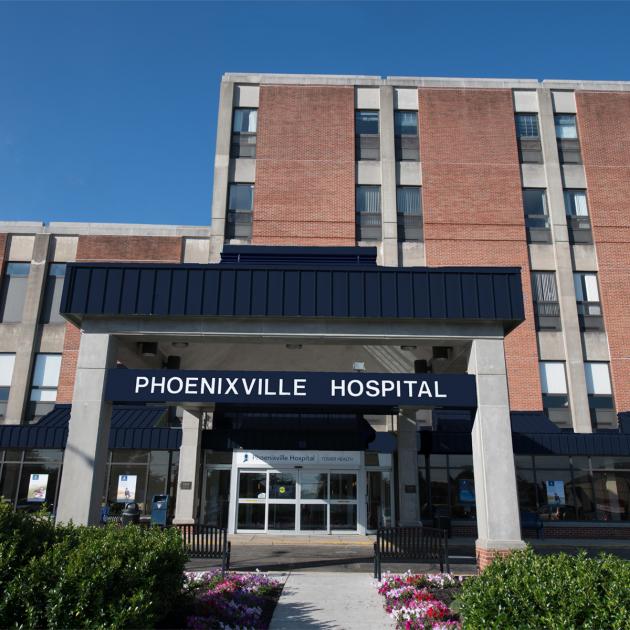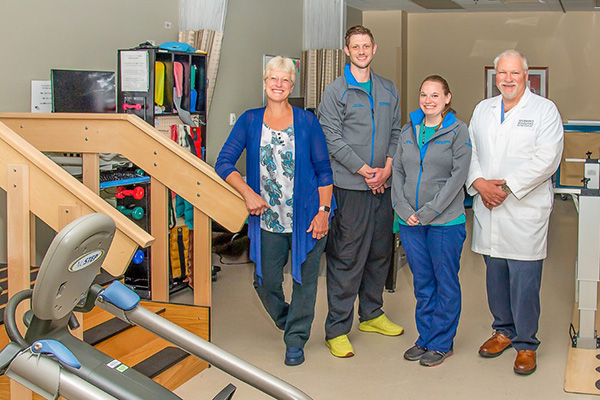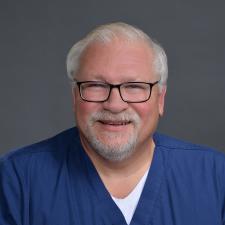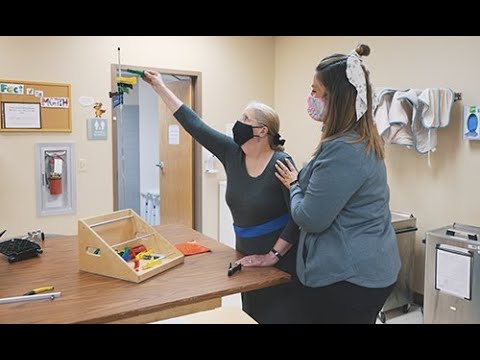Speech Therapy Services
Phoenixville Hospital offers several speech therapy services through a dedicated group of licensed speech therapists. If speech therapy is recommended, a patient evaluation will take place during the first meeting. During this session, the speech therapist will provide an assessment based on your needs followed by a formal treatment plan.
Speech Therapy Diagnosis:
- Aphasia
- Apraxia
- Cognition
- Dysarthria
- Dysphagia
- Fluency
- Post Concussion Syndrome
- Traumatic Brain Injury
- Voice Disorder, including LPR

Parkinson’s Patients
Unique to our speech therapy services is SPEAK OUT! for Parkinson’s patients. The program typically consists of twelve speech therapy sessions and daily home practice. SPEAK OUT! emphasizes speaking with intent and converts speech from an automatic function to an intentional act. Upon graduation from SPEAK OUT!, patients transition to The LOUD Crowd. A Parkinson’s Support Group meets at the Phoenixville YMCA on the second Monday of every month at 1:30 p.m.
Differences Matter
The below chart outlines the core differences between the Acute Inpatient Rehabilitation Program at Phoenixville Hospital and Nursing Homes that offer Rehabilitation Services.
| Acute Inpatient Rehabilitation at Phoenixville Hospital | Skilled Nursing Unit or Facility (SNU/SNF) |
|---|---|
| No 72-hour acute care hospitalizations | Requires 72-hour acute care hospitalization prior to admission for skilled services to be covered by Medicare |
| Patient must be visited by a rehabilitation physician a minimum of 3 times a week. Physician is the head of the team and coordinates the plan of care | Attending Physician must visit every 30 days for first 90 days |
| Provides a minimum of 3 hours of individualized (not group) therapy per day, at least 5 days out of 7, including at least 2 types of therapies (PT, OT and/or Speech) | Provides typically 45 minutes to 1½ hours of therapy per day (May be in a group setting) |
| Utilizes patient’s acute care Medicare days | Utilizes patient’s skilled Medicare days |
| Shorter average length of stay (13 ALOS nationally) | Longer average length of stay (average 21 days); 100 days maximum per year |
| Average 7.5 hours of direct nursing care per say by a registered nurse with a specialty focus on rehabilitation nursing. Nurses also have medical/ surgical competencies | Provides monitoring by licensed nurse each shift, no specialized training mandated |
| Full team of rehab focused clinicians (physical, occupational, speech therapists; social worker/case manager; rehab nurses) | Varied clinical staff (typically physical, occupational, sometimes speech, or as needed social worker and dietitian) |
| Homes evaluations can be provided as required; focus on family and caregiver education and community re-entry | Home evaluations are not provided |
| Care plans developed with input from entire team; team staffing completed weekly and family conferences completed on each patients | Care plans updated quarterly, but could be more often if there is significant change |
| Patients must be medically stable and have potential for increased independence | Patients must be medically stable (non-acute status) |
| Discharge planning is with the entire interdisciplinary team | Discharge planning ongoing |
| Patient must show practical improvement | Patient must show practical improvement |
Personalized Treatment Plan
What kind of treatments will I receive?
- Activities of daily living training (feeding, bathing, dressing)
- Mobility training (walking, wheelchair mobility, stair climbing)
- Language skills (ability to speak and understand)
- Thinking skills (attention, memory, problem solving)
- Visual skills (perception, hand-eye coordination, visual attention)
- Continence (control of bowel and/or bladder)
- Pain management (control of pain to enable optimal function)
- Home modification recommendations for safe discharge
- Community reintegration skills
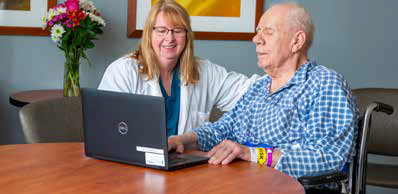
Preparing for Your Stay
What do I need to bring to the unit?
- Several changes of loose-fitting clothing suitable for exercising
- Walking shoes with non-slip soles and back (i.e., tennis shoes)
- Socks, undergarments, and sleepwear
- Sweater or light jacket
- Personal grooming items
- Glasses, hearing aides, dentures
- Electronic devices and charging cords
National Recognition
Accreditation by CARF
Joint Commission Accredited
Transitioning Home
At Rehabilitation at Phoenixville Hospital, we believe that family involvement is critical to the success of your rehabilitation program. We encourage family participation in program education and training.
As patients move towards the completion of their rehabilitation regimen, the team will work with patients and families to assist with making an easy transition home. A care coordinator is available to assist with insurance issues, help with discharge planning and support individual treatment goals. In addition, our team of therapists may perform a home safety assessment and will provide recommendations and educational materials so that patients can more effectively manage a safe transition home.
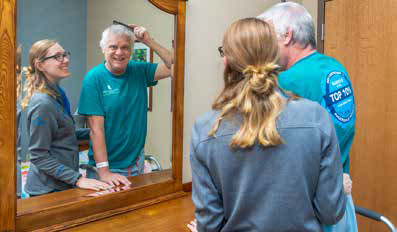
Transition of Care
Phoenixville Hospital offers various support groups to help patients and families throughout the rehabilitation and therapy process.
- Alzheimer’s Association Caregiver Support Group
- Cardiac Connect
- Diabetes Support Group
- Easy Breathers
- Heart Failure Support Group
- LGTBQ Support Group
- Parkinson’s Support Group
- Tobacco Support Group
To learn more about our support groups, please visit our Classes and Events page.
Questions? Please contact us.
Thank you for choosing our award-winning facility to meet your rehab needs.

